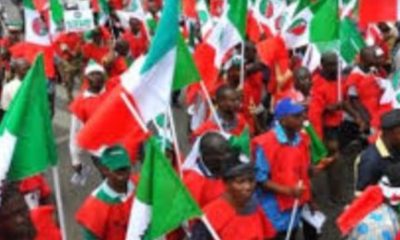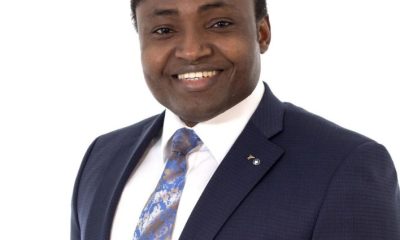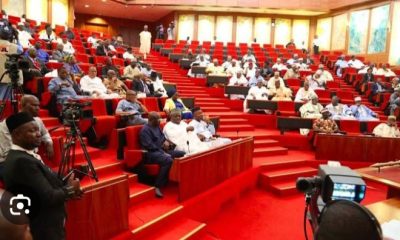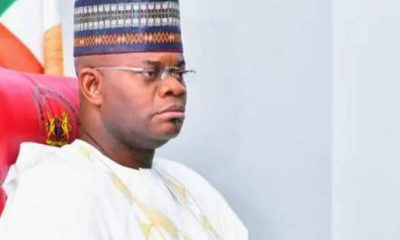Business
Tolaram Partners with Diageo to accelerate the Business Growth in Nigeria

Diageo sells its shareholding in Guinness Nigeria PLC and enters new, long-term partnership with Tolaram to accelerate the growth of Guinness in Nigeria. Diageo is creating a new model for Guinness in Nigeria and its locally manufactured ready-to-drink (RTD) and mainstream spirits (MSS) products in the country partnering with Tolaram, the specialist manufacturing, marketing and distribution conglomerate, under new, long-term license and royalty agreements.
Tolaram will acquire Diageo’s 58.02% shareholding in Guinness Nigeria PLC, a company listed on the Nigerian Stock Exchange, which produces and distributes Guinness in Nigeria, for a share price of 81.60 NGN per share, a 63% premium to the 30-day VWAP.
Tolaram has significant and extensive operations and a 50-year presence in Nigeria.
Diageo remains deeply committed to Nigeria. Diageo will retain ownership of the Guinness brand, and it will be licensed to Guinness Nigeria for the long-term, enabling its continued growth and development in the country under the stewardship of Tolaram.
Diageo will also remain in the country through its wholly owned international premium spirits business built to serve a wider geographic reach across West Africa, with Nigeria as one of the main operational hubs.
Completion of the transaction is expected to be in Fiscal 2025 subject to the satisfaction of certain conditions, including various regulatory approvals in Nigeria.
Diageo is creating a new model for Guinness and its locally manufactured RTD and MSS products in Nigeria, partnering with specialist manufacturing, marketing and distribution conglomerate Tolaram. Under the terms of the transaction, Tolaram will acquire Diageo’s 58.02% shareholding in Guinness Nigeria, and under new long-term license and royalty agreements, Guinness Nigeria (under Tolaram’s majority control) is expected to enter a new stage of growth.
As well as the Guinness brand, Guinness Nigeria will also continue to have rights to manufacture and distribute the other Diageo brands that it currently manufactures and distributes, including MSS. The international premium spirits business is, as previously announced and described below, in the process of being separated into a new wholly owned Diageo spirits company to maximise growth.
This transaction is consistent with Diageo’s strategy to operate a flexible and asset-light beer operating model, one which allows it to select the most appropriate structure and route to market for Guinness based on local conditions while retaining ownership of the iconic Guinness brand. Diageo will continue to drive the brand and marketing strategy of Guinness in Nigeria, in partnership with Guinness Nigeria and Tolaram to ensure Diageo’s exceptional capabilities in brand building and innovation continue to drive long-term growth for Guinness in the country.
With a five-decade presence in Africa, Tolaram is one of the largest consumer packaged goods companies on the continent and has forged joint venture partnerships with several leading consumer multinational companies.
The transaction announced today, and the new long-term partnership model serve to provide a robust platform for Guinness’ continued expansion in Nigeria, supporting investment in both manufacturing and distribution capabilities, and driving greater efficiency and growth.
This new framework for Nigeria further builds on Diageo’s active portfolio management and commitment to building an efficient operating model in West Africa that is structured to deliver long-term, sustainable growth. This follows the announcement in October 2023 of a wholly owned dedicated spirits company, which will further strengthen Diageo’s international premium spirits business and serve a wider geographic reach across West Africa, with Nigeria as one of the main operational hubs.
Commenting on the news Debra Crew, Diageo CEO, said:
“I’m excited to announce our new partnership with Tolaram. Guinness has been Nigeria’s favourite beer for nearly 75 years. Tolaram share this passion for Guinness and for Nigeria, making them the perfect partners as we continue to grow our business and seek to delight even more consumers in the country.”
Commenting on the news Dayalan Nayager, President Diageo Africa and Chief Commercial Officer, said:
“Guinness is one of Diageo’s most iconic brands and holds a special place in the hearts of Nigerian consumers. Our flexible, asset-light, beer operating model is working well in other markets, and we will unlock the full potential of Guinness in Nigeria with our new, long-term partner Tolaram. We’re also very excited about the future of our international premium spirits business in Nigeria, a vibrant country to which we remain deeply committed.”
Sajen Aswani, Chief Executive, Tolaram said, “Our partnership with Diageo to jointly grow Guinness Nigeria underscores our commitment to build on our strong presence and heritage in Nigeria, cultivated over decades of dedication and unwavering confidence in the future of Africa. We take a long-term view on all our investments and this partnership reflects our optimism on the exciting opportunities that lie ahead across the continent.”
Haresh Aswani, Managing Director, Tolaram Africa said, ““The acquisition of Guinness Nigeria marks a pivotal moment in Tolaram’s journey of growth and diversification. We are thrilled to welcome a company with such a rich legacy and strong consumer loyalty into our ecosystem. This strategic move not only expands our footprint in the Nigerian market but also presents an opportunity to leverage our combined strengths to foster innovation and deliver immense value to our customers and stakeholders across the nation”.
Following completion of this transaction, Guinness Nigeria will remain listed on the Nigerian Stock Exchange and Tolaram intends to launch a mandatory takeover offer in compliance with local law requirements.
About Tolaram
Established in 1948, Tolaram is a Singapore incorporated and headquartered enterprise that operates a diversified business portfolio encompassing the consumer, infrastructure, and fintech verticals across Africa, Asia, and Europe. In Nigeria, its consumer business operates under joint ventures with leading consumer multinational companies such as Indofood, Kellanova (formerly known as Kellogg Company), Dano, and Colgate-Palmolive. Under these partnerships, Tolaram manufactures and distributes Nigeria’s leading brands, including Indomie, Minimie Chinchin, Kellogg’s, Munch It, Power Oil, Power Pasta, Dano, Hypo, and Colgate, amongst others. Tolaram’s success in Nigeria has enabled further expansion into Ghana, Egypt, South Africa, Eswatini, Kenya, Ivory Coast, Mozambique and Saudi Arabia. Today, Tolaram operates 30 world-class manufacturing facilities across Africa, of which 25 are in Nigeria with many of them based in the Lagos Free Zone, Tolaram’s wholly owned private free trade zone. Tolaram has a significant presence in Nigeria, with over 15,000 employees and combined investments of over $1 billion.
You may like
-
Why I don’t trust any public institution in Nigeria – Fisayo Soyombo
-
Minimum Wage: Cross Rivers Workers to embark on indefinite strike
-
Naira Appreciates Against Dollar Amid Increased FX Supply
-
Tinubu Makes Historic State Visit to France as Macron Seeks Closer Economic Ties with Nigeria
-
Simon Ekpa’s Legal Troubles Deepen as Finnish Court Sets Date for Terror Charges
-
PMS Pricing: PETROAN Calls for Patience as NNPCL Prepares Official Announcement
-
Senate Plenary Erupts in Chaos Over Tinubu’s Tax Reform Bill
-
Tonye Cole Speaks on Petrol Selling Below N700 Per Litre
-
EFCC Detains Former Kogi Governor Yahaya Bello Over Alleged N80.2 Billion Money Laundering
-
Nigeria leads in Sub-Saharan Africa 2024 university rankings
-
NECO’s Global Presence Grows with Accreditation of Foreign Schools
-
PMS to reduce to N900 per litre – Marketers
Business
Tax Reform Bills scales second reading in Senate

The Senate has passed for second reading fours bills designed to reform Nigeria’s tax system.
This followed the presentation of the general principles of the bills by the Senate Leader, Opeyemi Bamidele (APC-Ekiti), during plenary on Thursday.
The four bills, which were first read on Oct. 30, are:o Joint Revenue Board of Nigeria Establishment Bill, 2024; Nigeria Revenue Service Establishment Bill, 2024; Nigeria Tax Administration Bill, 2024 and the Nigeria Tax Bill, 2024.
Leading the debate on the general principles of the bills, Opeyemi said
that they represented a significant move toward overhauling the country’s tax system.
He said that the bills were aimed at simplifying the tax landscape, reducing the burden on small business and streamlining how taxes would be collected.
According to him, the four bills seek to ensure uniformity in tax revenue administration in the country, in accordance with the provisions of the constitution and eliminate the incidence of double taxation across the country.
He said that the bills also sought to deploy taxation as a tool for encouraging private sector investments in critical industries and boosting individuals’ disposable incomes through targetted tax exemptions, as captured in the various bills.
“In the area of tax exemptions, there is a proposal to exempt small business operators, while those with annual turnover of N50 million or less are equally exempted from payment of taxes.
“Similarly, there is a reduction in company’s income tax from the current 30 per cent to 25 per cent by 2026.
“As part of deliberate attempt to curtail incidence of double taxation and multiplicity of taxes and levies, multiple taxes hitherto paid by companies under various tax heads namely: 2.5 per cent education tax, 0.25 per cent NASENI tax have been harmonised into a development levy of two per cent.
“This will be applied by 2030 to fund the newly-established student loan scheme which will benefit many Nigerian youths.
” Unlike like what is obtainable under the existing tax regime whereby the Federal Government takes a lion share of VAT revenues, it is proposed that the sharing formula should allow state governments to share 55 per cent of VAT revenue from the current 15 per cent to 10 per cent sharing formula,” he said.
He, however, said local governments share of VAT revenue remained unaffected.
“Relatedly, basic items consumed by Nigerian households, such as food items, medical services and pharmaceuticals, educational fees, electricity, etc. are exempted from VAT.
“Again, as part of efforts to ease the administration of income taxes and levies across the federation, there is a reasonable effort made to consolidate core tax statutes and related tax legislations,” he said.
The senator said that the bills contained innovative and people-oriented proposals as part of government’s deliberate fiscal and tax reform measures.
He said that the bills were meant to cushion the effects of the ongoing broader economic policies, such as the removal of subsidy on petroleum products.
Opeyemi said that the innovations were also tailored toward implementing cost-reflective electricity tariffs in the power sector.
He urged the lawmakers to see the bills as part of the required legislative intervention to support the ongoing fiscal and tax reform measures needed to reposition the Nigerian economy for growth and productivity.
“These bills should be considered with great sense of patriotism and exercise of the powers of the National Assembly under Section 59 of the 1999 Constitution regarding imposition of taxes.
“I, therefore, urge my distinguished colleagues to support the bills for second reading.
Contributing, Sen. Seriake Dickson (PDP-Bayelsa) lauded the bills, saying that they would entrench the much-canvassed fiscal federalism.
However, Sen.Ali Ndume (APC-Borno) said although he was not against reforms and tax reforms in Nigeria, he, however, said that the timing of the bills was the issue.
Ndume said that the issue of derivation proposed in the bills was contradictory, stressing that the constitution needed to be amended for some of the proposals in the bills to sail through.
He said that in inline with the positions of the governors and traditional rulers, the bills should be withdrawn for further consultations.
Ndume specifically said that the issue of VAT and derivation should be addressed, adding that senate should consult first before further legislative inputs could be made on the bills.
However, Senate Chief Whip, Sen. Mohammed Monguno (APC-Borno), vehemently disagreed with Ndume, saying that his position negated the senate rule on processes of lawmaking.
He said Section 60 of 1999 Constitution, as amended, empowered the senate to regulate its procedure.
According to Monguno, the process of law-making, as stated in the senate’s rule, was unambiguous, nothing that after second reading, the bill will be transmitted for public hearing, where Nigerians of all groups will be free to make their inputs on the bills.
The senator said that Ndume’s suggestion for senate to withdraw the bills was foreign to legislative process, describing the suggestion as an academic exercise that was not worthy of legislative consideration.
According to him, the bills are noble and pro-people, as it will reduce the tax burden on Nigerians.
President of the Senate, Godswill Akpabio, after the reading of the bills for the second time, said all concerned stakeholders, should be invited at the public hearing to make their inputs before final clause-by-clause consideration by the senate.
He consequently referred the bills to Senate Committee on Finance for further legislative inputs, with a directive to return back to plenary in six weeks.
Business
UBA to begin full banking operations in France
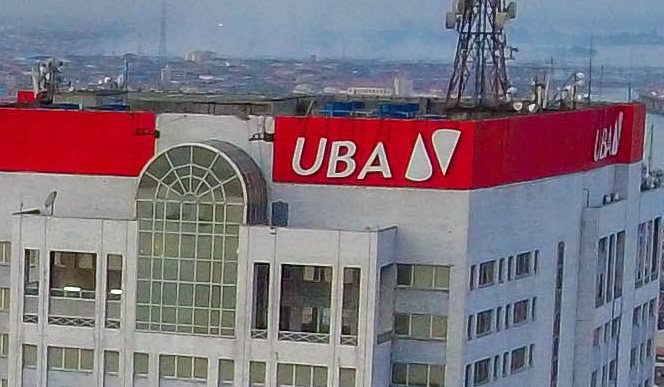
The United Bank for Africa has signed a deal to commence full banking operations in France.
In a statement late Thursday, the banking group said the landmark business cooperation agreement with the French Finance Minister, Antoine Armand, was part of President Bola Tinubu’s state visit to France.
During the visit, the Chairman of UBA Group, Tony Elumelu, in the presence of Tinubu and the President of France, Emmanuel Macron, signed the agreement indicative of support by the French Government for the development of UBA’s full banking operations in France.
Speaking at the signing ceremony, Elumelu said, “This partnership reinforces our commitment to seamless international banking services for our customers, not just across the 11 Francophone African countries we serve, but Africa as a whole and French and European customers transacting with Africa.
“Expanding into France is a natural progression, with Paris serving as our European Union hub as we continue to bring Africa and the world together through innovative financial solutions. Paris will join London, New York, and Dubai as a critical component of our unique global network.”Related News
With this agreement, UBA joins tier-1 banks in Nigeria, running with a banking presence in France.
Tinubu arrived in France on Thursday for a two-day state visit, with both sides looking to deepen their economic and diplomatic ties.
It is the first official state visit to Paris by a Nigerian leader in over two decades.
Macron welcomed his counterpart with a warm greeting in Nigerian Pidgin English, stressing the cultural connection between the two leaders.
“Na big honour for France to welcome you for dis state visit,” he wrote on social media.
Business
CBN sets new guidelines for FX trading
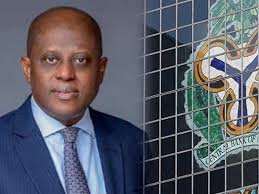
The Central Bank of Nigeria (CBN) on Wednesday announced new guidelines for foreign exchange (FX) trading through the Electronic Foreign Exchange Matching System (EFEMS).
CBN’s director of the Financial Markets Department, Omolara Duke, made this in a statement, stating that the new guidelines aim to ensure transparency, fairness, and compliance in FX trading.
The minimum tradable amount is set at $100,000; CBN disclosed this in a tweet, adding it will be effective December 2, 2024.
“The CBN transitions FX trading to Bloomberg BMatch, promising enhanced transparency, fair pricing and operational efficiency, effective December 2, 2024,” the apex bank tweeted.
CBN also stated that the Bloomberg BMatch platform will boost market integrity, enhance price discovery, and ensure seamless FX trading among participants.
General Provisions
1. These guidelines regulate the operations of interbank FX trading via the Electronic Foreign Exchange Matching System (EFEMS),
2. The purpose is to ensure transparent, fair, and efficient FX trading, minimising counterparty risk and ensuring compliance with Central Bank of Nigeria (CBN) regulations. and greater
3. The CBN has approved the Bloomberg BMatch as the designated platform to support the EFEMS for interbank trading. advised to
4. All market participants are required to comply strictly with these guidelines and any amendments as may be issued by the CBN from time to time.
Trading and Operational Requirements
1 Trading hours shall be from 09:00 hrs to 16:00 hrs WAT on business days.
2 All unmatched orders will be cleared at the market’s close and may be resubmitted on the
following business day.
3 Quotes on EFEMS will remain anonymous until matched. Once matched, counterparty details will be revealed for settlement purposes.
4 All trades consummated on EFEMS are binding, unless canceled by mutual agreement of both parties with written approval from the CBN.
5 The minimum tradable amount is US$100,000.00, with incremental clip sizes of US$50,000.00.
6 Participants must set credit and settlement limits for other counterparties in the system.
Transactions exceeding these limits will not be executed.
7 Participants must have adequate credit and settlement limit set for the CBN as its counterparty bank.
8 Participants are required to comply with the Nigerian Foreign Exchange Code and other CBN regulations.
9 EFEMS shall be used exclusively for executing spot FX transactions involving the Nigerian Naira (NGN) against the United States Dollar (USD). Other currency pairs may be introduced upon the CBN’s directive.
10 Transactions on EFEMS must be settled through approved settlement systems, with participants
bearing responsibility for their obligations.
1 The platform provider must offer real-time support to address system issues. In the event of prolonged downtime, alternative trading protocols will be activated as prescribed by the CBN.
12 Any participant defaulting on settlement obligations will face penalties as determined by the CBN.
Governance and Data Reporting
1 The CBN shall monitor all transactions on EFEMS to ensure market integrity and transparency.
2 Participants must submit daily transaction reports only to the CBN, detailing trade volumes, counterparties, and settlement status. All whole/interbank trades conducted between Authorised Dealers and non-banks participants on telephone and other acceptable channels in the market must be confirmed on the RFQ and reported on EFEMS immediately. Any deal that falls outside the EFEMS parameters, such as same day or next day settlements delivery vs payment transactions where limits are exceeded and deals with non-standard amount should be booked via the RFQ functionality and uploaded automatically to the FX blotter not more than 10 minutes after the completion of the trade.
3 All trade data generated on EFEMS shall be owned by the CBN. The CBN reserves the right to publish aggregated or disaggregated data for market analysis, subject to confidentiality agreements.
4 The CBN reserves the right to review EFEMS operations, including participant activities and system efficiency, periodically.
5 Violations of these guidelines or other applicable regulations shall attract penalties, including suspension or revocation of EFEMS access rights.
Business
Naira appreciates against dollar despite CBN interest rate hike

Despite the announcement of an interest rate hike by the Central Bank of Nigeria (CBN) on Tuesday, the naira appreciated to N1, 659.44 against the US dollar.
Data from the Nigerian Autonomous Foreign Exchange Market (NAFEM) showed a N16.88 gain against the dollar from the N1, 675.62 it traded at on Monday.
A look at the parallel section of the foreign exchange market showed a gain of N5 for the naira against the dollar, trading at N1,750 compared to the N1,755 it traded at on Monday.
The naira, however, didn’t record any change in trade against the British pound on Tuesday as it still exchanged at Monday’s rate of N2,245 against the pound.
Also, the naira maintained N1,300 against the Canadian dollar but appreciated marginally against the Euro to trade at N1,840/€1 as against the previous day’s rate of N1,845/€1.
Business
CPPE raises concern over CBN’s MPR hike to 27.50%

The Centre for the Promotion of Private Enterprise (CPPE) has raised concerns over the Central Bank of Nigeria’s (CBN) sustained tightening of the Monetary Policy Rate (MPR), now at 27.50 per cent.
Dr Muda Yusuf, Chief Executive Officer of CPPE, stated in Lagos on Tuesday that the continued rate hikes by the Monetary Policy Committee (MPC) could further stifle economic growth.
NAN reports that the MPC of the CBN, during its 298th meeting, further raised the country’s interest rate to 27.50 per cent from 27.25 per cent.
It, however, retained the Cash Reserved Ratio (CRR) at 50 per cent for Deposit Money Banks and 16 per cent for merchant banks.
The committee also retained the Liquidity Ratio at 30 per cent, and also the Assymetric Corridor at +500/-100 basis points around the MPR.
“It is troubling that despite the declining growth performance of many critical sectors of the economy as evidenced in the third quarter GDP report, the MPC still continued its tightening stance.
“The GDP sectoral performance report also revealed a glaring disconnect between the financial services sector and the real economy,” he said.
He said that the financial services sector recorded a growth of 32 per cent while agriculture and manufacturing grew by 1.14 per cent and 0.92 per cent.
Yusuf said, “This disposition will deepen this distortions. Meanwhile strategic economic sectors such as agriculture, manufacturing and real estate recorded declines in growth in the third quarter.
“Air transport and textile remained in recession. These sectors need monetary and fiscal support, not a further tightening of monetary conditions.
The financial expert called on CBN to increase support for development finance institutions to address financing challenges caused by the sustained tight monetary policy regime.
Business
Breaking: CBN increases interest rate to 27.5%
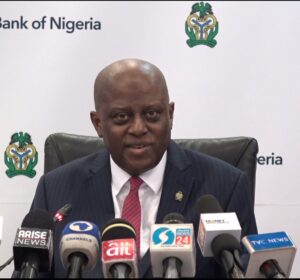
The monetary policy committee (MPC) of the Central Bank of Nigeria (CBN) has raised the monetary policy rate (MPR), which benchmarks interest rates in the country to 27.50 percent — from 27.25 percent.
Olayemi Cardoso, CBN’s governor, announced the committee’s decision at a press conference on Tuesday after the panel’s 298th meeting in Abuja.
He said the committee increased the MPR by 25 basis points.

2025: How To Plan A Budget For The Upcoming Year

Ruud van Nistelrooy Opens Up on Hurtful Manchester United Exit Before Taking Leicester City Job

Obasanjo would have died under Abacha if not for me -Gowon

Why I don’t trust any public institution in Nigeria – Fisayo Soyombo

Minimum Wage: Cross Rivers Workers to embark on indefinite strike

Bayer Leverkusen Forward Victor Boniface Faces Possible Sanction for Reckless Driving Incident

Radda approves N70,000 minimum wage for Katsina workers

PH refinery has not commenced bulk sales – NNPC

CBN issues Dec. 1, ultimatum against banks, ATM delays


